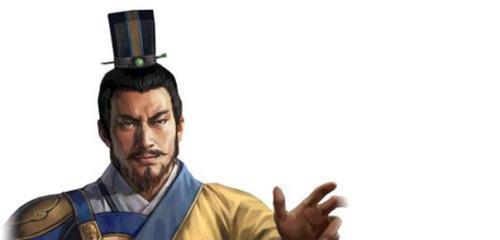Today, I continued to read the Book of Jin, and I read the biographies of several rebels and powerful ministers. Recently, I have also had a lot of troubles at work, and seeing these people makes me feel a little touched.
The Twenty-Four Histories were read down in historical order and the Book of Jin was read. I thought that after reading the Siyi Biography, followed by the new record of the "Book of Jin", I did not expect that the "Book of Jin" would turn around and pass on several rebellious courtiers in turn according to the size of the scale. Reading the biographies of these rebels, I survived the fun.

Wang Dun
, from the Langya Wang clan. His cousin Wang Dao, together with Sima Rui, the Emperor of Jinyuan, was known as Wang and Ma. The Wang clan in the "Old Wang Xie Tang Qianyan" refers to the Wang Dun family, and the other Xie clan refers to the Xie An family. His cousin Wang Dao has been living in Zaifu in the middle of the dynasty. Wang Dun himself was heavily armed to defend the north and grasp the main military power of the Eastern Jin Dynasty.
In this case, Wang Dun, who came from a famous and prestigious family, always had inappropriate words and actions outside, which were infinitely magnified by the people in the court and reported to the then emperor Sima Rui of Jinyuan. Later, no matter how Wang Dun explained, he expressed his loyalty. No way, with military power in hand, no one believes it. All that remains is exclusion, in which case you have to rebel if you don't rebel.
Wang Dun's rebellion was not quelled until the time of Emperor Ming of Jin, and it was after Wang Dun's death.
Huan Wen
Huan Wen's family background was not as deep as Wang Dun's. It was not until his father Nandu that he was given the title of "Jiangzuo Bada". Huan Wen himself was outstanding in ability, and by his own efforts, he married the eldest princess of the Jin Ming Emperor and became a horse master. Huan Wen's life is simply open and hanging.
First of all, the town guarded Jingzhou and grasped the military power of the Yangtze River. It then defeated the Chenghan regime and returned Shu to the Territory of the Eastern Jin Dynasty. There were three more Northern Expeditions, recovering lost territory and recommending that the emperor return the capital luoyang.
Huan Wen was arguably the most powerful general in the Eastern Jin Dynasty. Unfortunately, what was brought to him was the same as Wang Dun's. Huan Wen's initial handling method was the same as Wang Dun's, and the ending was the same, the explanation was useless, and no one believed it. It's just that Huan Wen's final way is different from Wang Dun's, Huan Wen returned to the center of the imperial court, directly controlled the Jin Emperor, and took power himself, at this time, Xie An not only did nothing to Huan Wen, but also very obedient.
Huan Wen was unable to usurp the throne in the end, and this matter was finally completed by his son Huan Xuan, known in history: Huan Chu, but only 80 days. This is an afterthought, which will be described in more detail later.
When I was talking to my friend about this history, my friend asked me why I didn't surrender my military power for peace. This is a good answer: surrendering military power is equivalent to handing over human heads, and the end is to be executed. Because Sima Yi, the founder of the Great Jin Dynasty, did just that. At that time, Sima Yi made a change in Gaopingling and surrounded Emperor Wei and Cao Shuang, that is, to make Cao Shuang surrender his rights and surrender, so as to protect his glory and wealth. The stupid Cao Shuang believed it. What is the end of the waiting for Cao Shuang: the annihilation of the three tribes. Who would dare to surrender military power? Cao Shuang's ending is a living example.
Don't talk about Wang Dun and Huan Wen, the well-known Yang family general, Yue Fei. Aren't they all the same? Holding military power, the most criticized thing is rebellion. The emperor was still suspicious, and almost told one by one. When Emperor Xuan was in power, dealing with this kind of thing was either rebellion or death like Yue Fei. Those who rebel have left behind a reputation for eternity, but those who do not rebel are flowing with pain, but it is a pity that they have suffered themselves. There is really no such thing as both interest and reputation.
Don't say that it is not easy to deal with such things as the emperor in power, that is, the Ming Jun, that is, the founding Ming Jun, how many people are kind to the generals? All I can think of is the Guangwu Emperor Liu Xiu and Tang Taizong Li Shimin, because these two are too powerful to suppress this bunch of people, and these two are still healthy and long-lived, and they have survived a lot of cronies who followed them to fight the world. Of course, Liu Xiu and Li Shimin's men are also people who understand that they should surrender their rights and enjoy Qingfu. The better ending is also the Song Taizu Zhao Kuangyin's "cup of wine to release the military power", although there is no military power, but after all, it will not be killed. For the emperor, it is okay to give you some money, but it cannot threaten his country and dignity.
This made me feel the problems in my recent work, the subordinate met a narrow-minded leader, once his team became bigger and stronger, he left himself with the same end. What can I do?